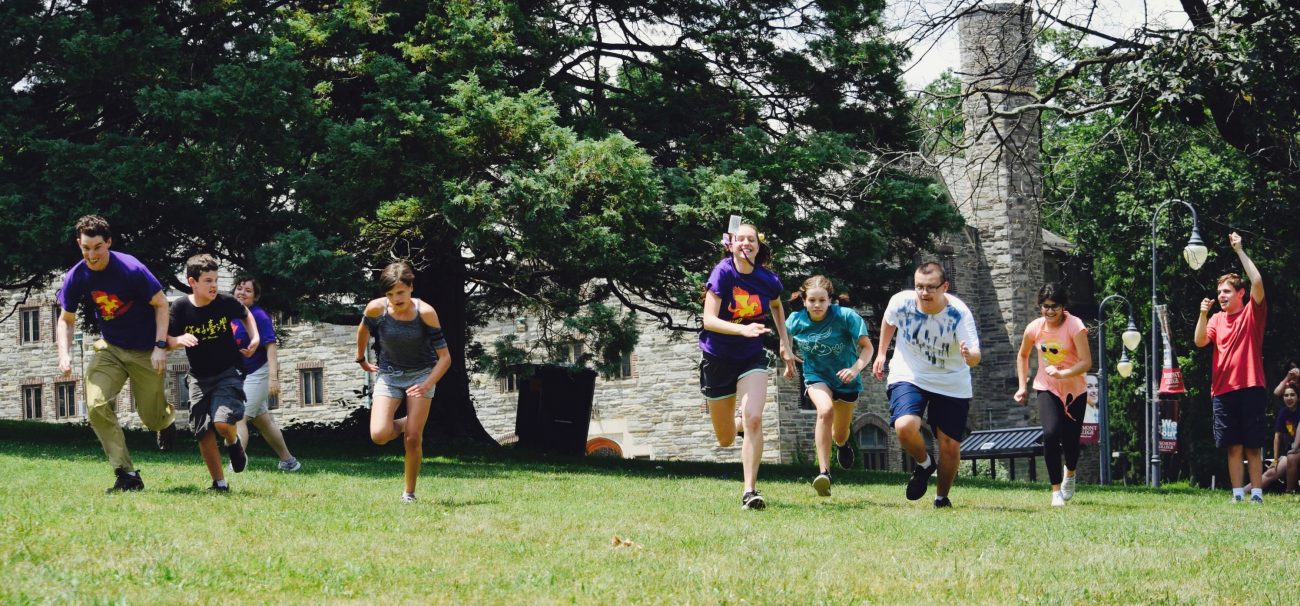Teaching Campers to Soar: How Camp Pegasus Got its Wings
When art therapist Mike Fogel saw a need in his community, summer camp for neurologically atypical and socially challenged kids, his mission became clear.

“It gives me great joy to see our campers grow socially, gain more confidence, and engage with the world.” says Mike Fogel, founder and executive and clinical director of Camp Pegasus, Haverford, PA.
While all parents are invested in their children’s social development and engagement with peers, not all children find it easy to interact with the people and the world around them. Some are so shy, they find approaching another child terrifying. Some are afraid to join or begin conversations. Interactions that the neurotypical population may take for granted, like something as simple as saying hello or joining in play, can be intensely challenging, and even anxiety-provoking for some children. For the parents of these kids, sending them out into the world, whether to school, an event, even a family gathering, comes with trepidation. Will their child be accepted? Understood? Bullied? The idea of summer camp for parents of kids with learning differences, ADHD, High Functioning Autism, or other atypical neuro-development, may feel out of reach. Mike Fogel thought it shouldn’t be.
Fogel began his career working with adolescents as an art therapist and a licensed professional counselor. In 2000-2001, when a number of patients were arriving with the newly common diagnosis of Asperger’s Syndrome, Fogel integrated art and play therapy with parent support and training into a unique therapeutic approach. This led to the founding of Art of Friendship, Social-Coping Program in 2000. In 2007, he opened the group practice The Child and Family Art Therapy Center.
Fogel’s work with families and school-age kids led him to an important observation: some of the greatest challenges of the neurologically atypical population occurred in the summer. Mainstream camp structures weren’t supporting the kids’ needs, and parents were at a loss. Why wasn’t a camp available that made sense for their children? The need for a supportive, therapeutic camp to address social challenges, that would also be fun for the campers, was evident. Fogel decided to fill that need. He organized a half-day mini-camp out of the Art of Friendship offices for 7 years. Next stop? Camp Pegasus, which spread its wings as a full-day, therapeutic social skills camp, opening in 2013.

Today, Camp Pegasus features a social skills training approach combined with a structured day camp with activities like sports, archery, circus arts, computer gaming, digital photography, indoor play, art, and music therapy. Camp Pegasus specializes in helping kids with OR without a formal diagnosis of ADHD, learning differences, and High Functioning Autism, ages 6-16.

The day-to-day approach at Camp Pegasus consists of four points:
Social lessons – The camp merges best practice social skills therapy techniques, creative arts, and summer camp activities to advance social competency while building self-esteem. An email goes to parents daily to describe the social lesson of the day with tips on how to reinforce at home. The Camp Pegasus evidence-based program is proven to decrease unexpected behaviors and increase positive behaviors at home due to social skills learned and practiced at camp.
Real-time feedback and rewards – Camp Pegasus has a rewards system focused on creating positive cycles in real time. Staff offers specific targeted praise, with tangible rewards like tokens and toy prizes, encouraging campers to repeat new, learned skills until they become habits.
Social Coaching – In the event of a social mistake or miscue, the staff employs compassionate social coaching.
Emphasis on calm – Campers often have big emotions and reactions to everyday events. An emphasis is placed on learning to self-calm, and self-regulation. The camp is equipped with calming down rooms and sensory items, fidgets, and art materials that help kids resettle.
The most common feedback from campers? Fogel is proud to report it’s this: “This is the first time in my life I’ve been able to be fully myself and be accepted and not judged.”
To read what Camp Pegasus parents have to say about their kids’ camp experiences, check out their testimonials.
Enrolling now for summer 2021!
If you are interested in Camp Pegasus for your child, please send an email to their Camp Administrative Director, Aviva Moore, with your child’s name, age, grade, diagnosis and any questions or concerns you have. Also forward your child’s most recent evaluation and/or IEP. Their clinical team will quickly review the documents to see if the program is the right fit for your camper’s needs.
The Camp Pegasus Mission:
Camp Pegasus provides social-emotional developmental experiences in a therapeutic day camp setting. The camp addresses all social challenges, but is specifically designed to help children with social cognitive deficits (High Functioning Autism (Asperger’s type), Attention Deficit Hyperactivity Disorder and learning differences).
The camp merges best-practice social skills therapy techniques, creative-arts therapies and success-oriented summer camp activities. Camp Pegasus aims to advance campers’ social competency while building self-esteem through social, physical and creative activities with peers.
We believe in the sanctity of childhood. Every child deserves the magic of play, creativity, and friendships. Lastly, above all else, we believe each child deserves to feel accepted.
This Sponsored Story by Karen Barbuscia supports the Main Line Parent Community. Photography courtesy of Camp Pegasus.




NO COMMENTS